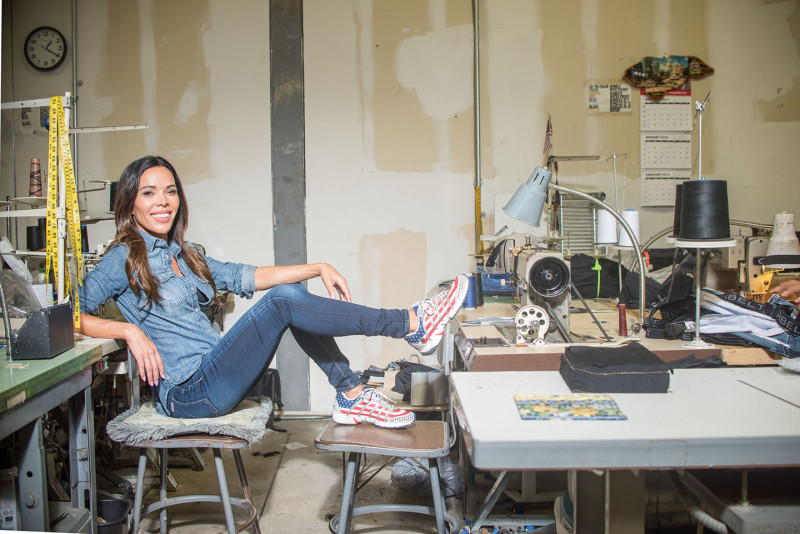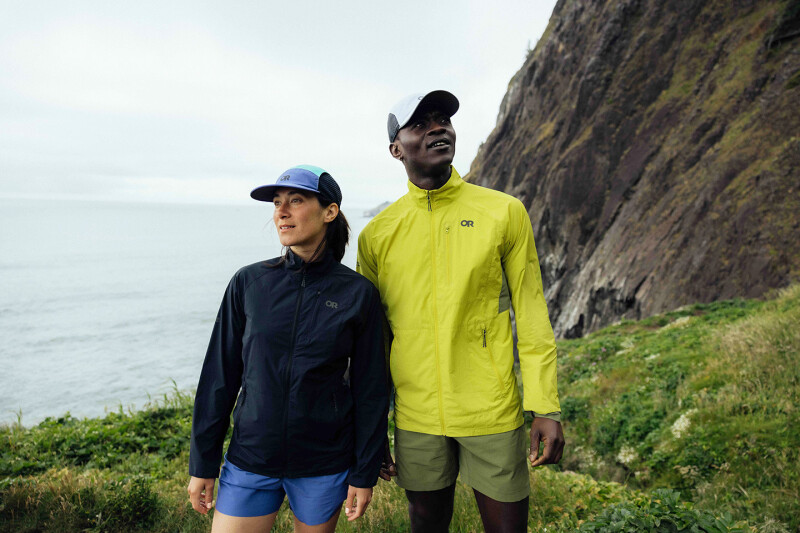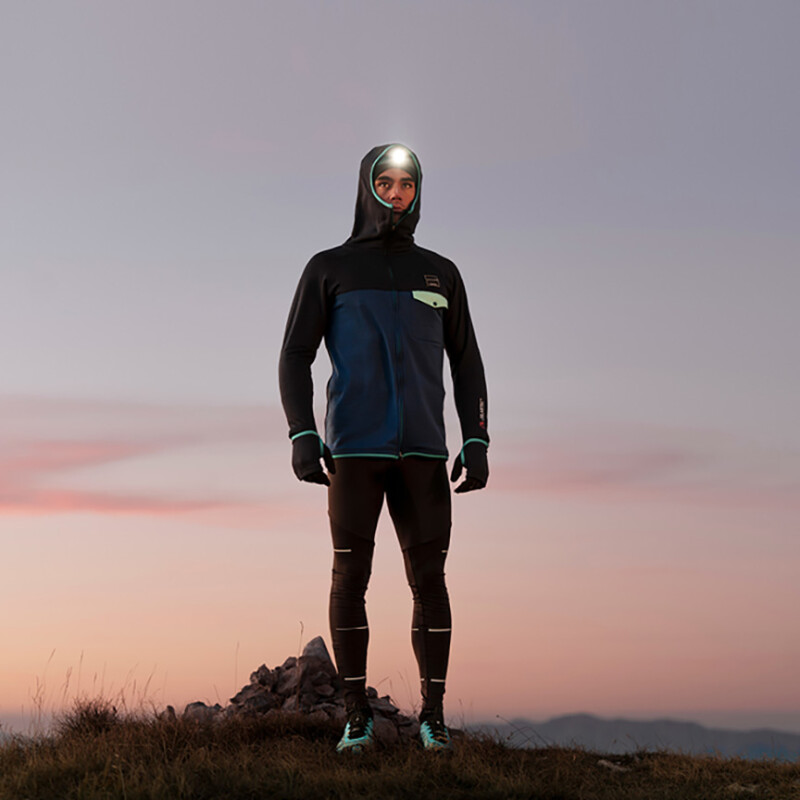Background: Kim Overton is the creator and owner of SPIbelt, a company she launched 14 years ago while out on a run one day trying to come up with marketing ideas for her first fitness video, Love Your Legs. Before SPIbelt, she was a personal trainer with fitness videos (Love Your Legs, Love Your Babybody, Love Your Core). Before her trainer days she co-owned and operated a tech company in New York City, where she learned that she does not enjoy the corporate grind.
Please explain your title and role at SPIbelt.
Well, my title is CEO or president, but I prefer Kim. I’m our company’s visionary and team lead with a focus on supporting my management team, and forging our path ahead to continued revenue growth, product line expansion, and market reach.
We have to ask: What is the history of the SPIbelt name and why the capital SPI and lower case belt? Just curious.
Good question. The name SPIbelt stands for "small personal item belt," and sounds like "spy belt." I capitalized the acronym and kept all of "belt" lower case to make it easier to discern the two. I went through a host of names when starting out and SPIbelt stuck.
OK, now that’s cleared up. So, how has the past year been for SPIbelt in dealing with the pandemic?
Business-wise, 2020 was positive, all things considered. Our doors remained open, my team remained employed and we remained healthy. For this, I am grateful.
How did the company handle the challenge?
At the beginning of COVID, we quickly transitioned to making masks, which was basically like starting a new business. This experience was extremely taxing and emotional on my team in addition to navigating a new working environment, but they persevered and we made it through the madness. For all of us, it was heavy to lose retail partners, especially those we’ve worked with for several years. Seeing doors shuttering was the worst part of the pandemic for us.
How about for you personally?
Where do I start? I have three boys from age four to 10-years old and they’ve all been home since March. Navigating homeschool while working and maintaining our household has been a tremendous challenge. I take comfort in knowing other parents have let their parental rules bend a bit during this time.
How so?
I’ve had to learn to go easy on myself and to find humor in it all. I discovered TikTok and made many silly videos with my 10-year-old that kept us entertained. At 50-years old I consider that a win.
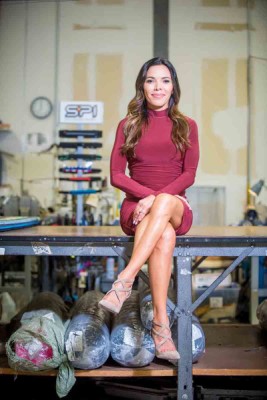 What is your “typical” day like these days?
What is your “typical” day like these days?
Each day I aim to start with at least one hour for myself early in the mornings. During this time, I meditate, read, write, reflect and plan my day.
And then the kids wake up?
Yes, then it’s time to get the kids fed and ready for their day of remote learning. Once they’re in position, I’ll knock out a workout or run and then my workday begins.
What happens then?
My typical workday is a mix of conference calls, in-person time with my team in the office, phone calls and lots of emails. I’ll then toggle back to helping the kids out with school work and making sure they get outside for fresh air. I usually end the day with more work calls and emails. If I’m feeling extra creative when all work is done, I’ll mix up a mango margarita for myself and my husband and we’ll make a toast to getting through another day.
Sounds like you earned that margarita. Now here’s a question that makes some people think a bit: Do you view yourself as a woman in the run specialty business or simply a professional in the run specialty business?
Certainly as a woman in the run specialty business and proud of it. I’m happy to be a part of the women-owned business club. Men have been the leaders in business ownership for so long, in this industry and others, and it’s so exciting for me to be a part of a rapidly growing group of female leaders. These days there are so many of us in run specialty, that it seems to be more of the norm. The comradery is amazing.
Many people feel that run specialty is actually more equal in gender participation than many other businesses. Just look around The Running Event (when we can have it again) and see how many women are walking the aisles and working in the booths. Do you agree with this?
Yes, I do feel there is more equal gender participation than in other businesses; I’ve certainly observed this often over the years. The desire to run, workout and maintain physical health is strong for both genders and brings us all to the table with knowledge, passion, experience and a desire to help others. This passion seems to help create an environment of mutual respect.
What do you think you bring to your business with a woman’s perspective as compared to your male colleagues?
Patience, plus a more nurturing approach. My team’s mental and physical health and happiness, including that of my family and myself, are a priority for me. I also lead intending to nurture the relationships with our retail partners, our customers, and even our vendors.
How does that translate into a good business plan?
Profit is always at the top of the list, but profit doesn’t exist if all of our relationships are bad and customers hate us. I genuinely care about our people and so do each of our team members.
Do you think having a woman at the top has helped SPIbelt reach more female customers with its products? If yes, how so?
100 percent. I am our customer. I can speak directly to women from a place of experience and relatability. When I was a beginning runner, I did not feel that brands spoke to me. I hope women from all backgrounds and levels of running feel we offer a solution for their needs. That said, our products are not gender-specific. We aim to make our line appealing to men and women while listening to and addressing all of our customers’ specific needs.
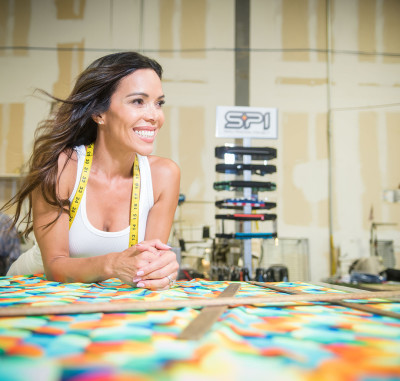 What advice would you give to run specialty retailers about reaching out and merchandising to female runners?
What advice would you give to run specialty retailers about reaching out and merchandising to female runners?
Allow women of all backgrounds and levels of running an opportunity to have a voice and be part of your community. Make it clear you’d like to hear from them — their feedback can really make a difference.
Anything else?
Yes, create an environment and community that is inclusive and influenced by your community of women. I would have appreciated being invited into the communities of my local running stores back when I was starting out as a runner.
What advice would you give to any young (or older) women considering following a similar career path in the run business?
Do what you love and love what you do. With anything, the more passion and belief you have about what you are doing, the more enjoyable it’ll be, and the better you’ll be at it. Lead with heart and passion in your relationships with your customers, and with your team.
How does that work in the business world?
When building your team, think cultural fit in addition to talent. You're building a family in a sense. All families have issues, but the better everyone gets along, the better they’ll work together. And opposite to this, if someone on your team is toxic to your environment, be swift in taking action for the health of your company, your team, yourself, and for the benefit of that individual.
Anything else?
As you start your journey, remember this proverb, “Smooth seas do not make skillful sailors.” It will be rough, but you’ll be better and stronger because of it.
I like that proverb. Finally, what are you expecting for you and SPIbelt in 2021 and what is it going to take to achieve that?
The beginning of this year marks 14 years for us in business. We’ve been fortunate to have a steadily growing business. We’re mixing things up this year with a rapid growth plan, including growing our sales team and introducing product designers. We’re also expanding our marketing team.
So from your desk the future looks good for SPIbelt and the run specialty business?
We see bright skies ahead and look forward to broadening our market and meeting new user groups while we continue to strengthen our current customer base. We are also very much looking forward to seeing our fans and customers in person at races again.
